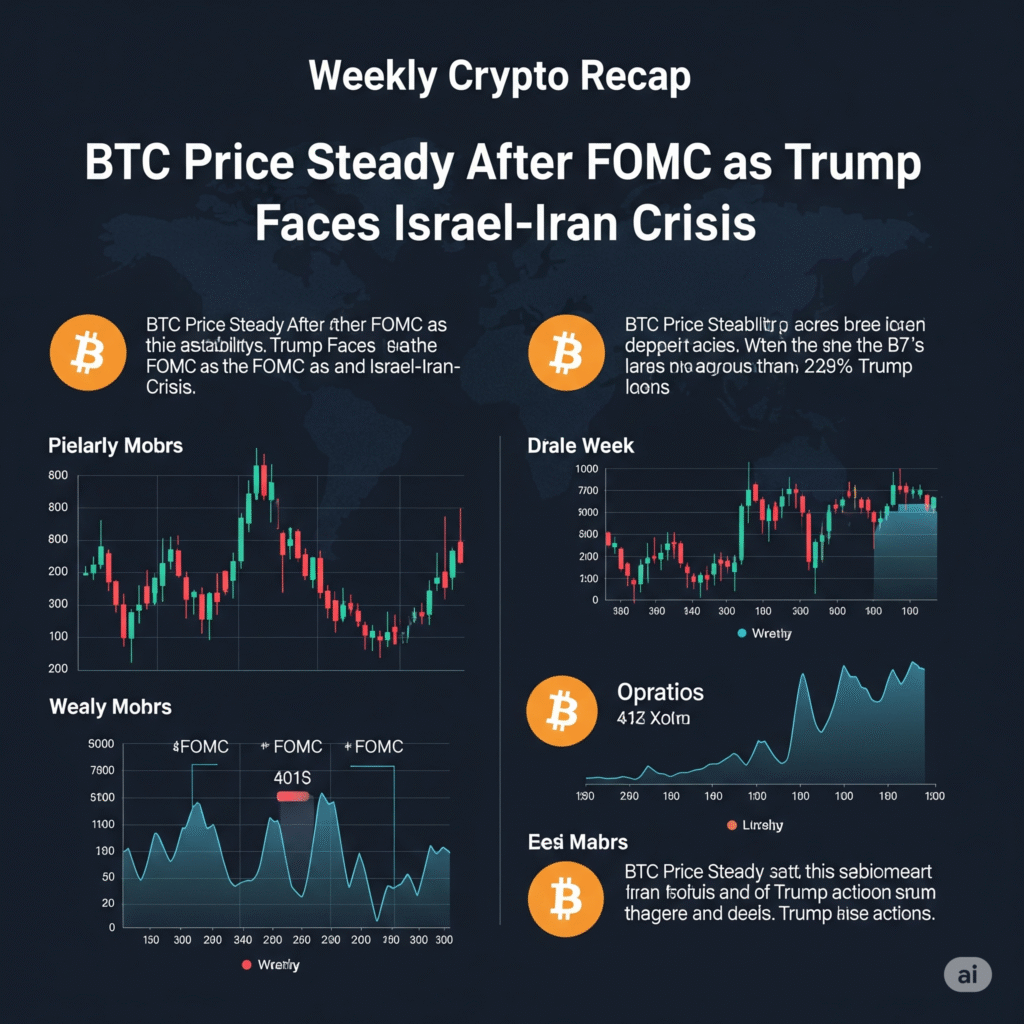This past week was packed with major geopolitical and economic developments, yet the crypto market—particularly Bitcoin—demonstrated surprising stability.
The volatility began early Friday morning when Israel launched a missile strike on Iran, reportedly killing over 70 individuals, including top military commanders and nuclear scientists. The unexpected nature of the attack sent shockwaves through global markets, and Bitcoin (BTC) wasn’t spared—its price quickly plunged from above $108,000 to under $103,000.
Tensions escalated as Iran retaliated, and Israel responded with further aggression. U.S. President Donald Trump weighed in, urging Iran to return to the negotiating table over its nuclear program before, in his words, “it’s too late.”
Despite the geopolitical unrest, BTC showed resilience. By the start of the week, the BTC price had stabilized in the $104,000 to $105,000 range. On Tuesday, Bitcoin surged to $109,000, but the rally was short-lived as prices pulled back sharply to $103,500.
The market then turned its attention to U.S. economic policy. The Federal Reserve concluded its FOMC meeting on Wednesday, leaving interest rates unchanged—an outcome widely expected by investors. Following the announcement, the BTC price remained relatively flat, hovering around $104,000.
In summary, while global headlines dominated the week, Bitcoin managed to hold steady amid the chaos—highlighting a maturing market that’s increasingly able to withstand both geopolitical shocks and central bank policy moves.
